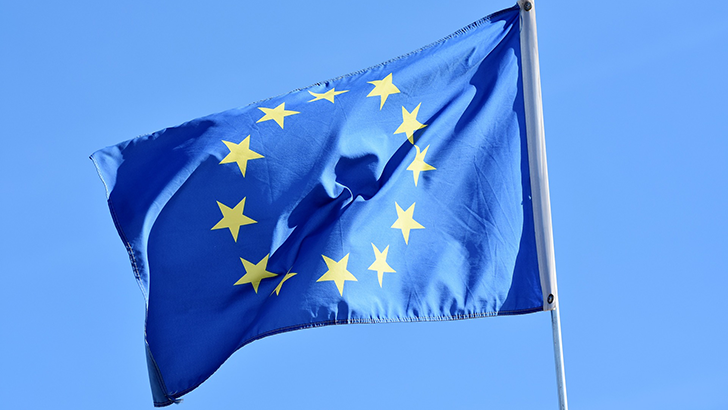The EU has just reached an agreement on the so-called Digital Markets Act (DMA), which is supposed to “make the digital sector fairer and more competitive.” If passed, the legislation is probably one of the most far-reaching laws in the tech sector after GDPR, having broad implications on Google, Apple, Amazon, and Meta’s business practices. Under the currently agreed text, the companies will be forced to make many concessions towards smaller competitors to create a fairer market, including a push for limited interoperability between messengers like WhatsApp and smaller competitors.
The DMA is solely focused on so-called “gatekeepers.” The EU defines these as companies that control one or more core platform services in at least three of its member states, such as marketplaces and app stores, search engines, social networks, cloud services, advertising services, voice assistants, or web browsers. There are also certain revenue and valuation thresholds to be reached, and the businesses must have at least 45 million monthly end users or 10,000 business users in the EU. This leaves us with only a few big, mostly American entities like Google, Amazon, Microsoft, and Meta.
New rules to play by under the DMA
To ensure that big businesses don’t use their market power to their own advantage over smaller competitors, they will have to follow a set of new rules. Users will be able to use only parts of the companies’ services, unsubscribing from others, and companies must explicitly ask for permission to use user data across their different services — think using YouTube, but not Gmail or Android.
Core software like web browsers can no longer automatically be the default upon installation of the operating system, and app developers must have access to supplementary functionality of smartphones like NFC chips. The former would be a blow to Google and Microsoft’s practice of making Chrome and Edge their default solutions, and the latter would have Apple open its NFC chip to third-party payment service providers, something the company has categorically ruled out in the past.
The biggest shift is probably that these companies have to “ensure the interoperability of their instant messaging services’ basic functionalities.” This would mean that a service like WhatsApp or Facebook Messenger would have to open up to third-party developers, allowing users to pick an app from a smaller studio like Signal or Telegram to reach their friends and family on WhatsApp. Something like this brings significant technical challenges with it, and it’s unclear if other developers would even want this functionality in their own apps, given that a move like this might weaken encryption and open up further attack vectors.
Implications of and reactions to the DMA
If a gatekeeper doesn’t play by the new rules, the legislation leaves room for fines of up to 10% of their global turnover, with 20% fines imposed on repeat offenders. And if a gatekeeper “systematically fails to comply with the DMA,” meaning, it doesn’t comply with the rules at least three times in eight years, “the European Commission can open a market investigation and, if necessary, impose behavioural or structural remedies.” In other words, the EU could break up companies or prevent them from making new acquisitions.
Affected companies are raising concerns and criticism. Apple told the BBC that it was “concerned that some provisions of the DMA will create unnecessary privacy and security vulnerabilities for our users.” Google states, “While we support many of the DMA's ambitions around consumer choice and interoperability, we're worried that some of these rules could reduce innovation and the choice available to Europeans.”
Meanwhile, Microsoft is supportive of the DMA. Microsoft Vice President Casper Klynge posted on LinkedIn, "Microsoft has been supportive of EU efforts from the start to help ensure that digital markets remain fair and competitive. Open platforms are important to innovate for the future and the new European gatekeeper rules will ensure that large online intermediaries, including Microsoft, do more to adapt."
The Coalition for App Fairness, mostly comprised of smaller competitors like Spotify, Epic Games, Tile, and ProtonMail, welcomes the agreement. "We commend EU policymakers on this significant step towards the fight for a free and fair mobile app ecosystem and look forward to reviewing the details of the agreement,” said Coalition for App Fairness executive director Rick VanMeter. “We believe a strong DMA will stimulate competition and foster innovation."
Given that the most important bodies of the EU have agreed on the rules, they will likely pass in a similar form to the one that is currently proposed. It's part of a big new rulebook that was initially proposed 2020 under the Digital Services Act umbrella.
The rules shouldn’t be a surprise if you’ve ever loosely followed tech regulation in the EU. In essence, it’s the formal collection of many ideas and rules that the EU has previously proposed, providing an actionable framework for the legislators that could actually have an impact on the companies in question.
Google, in particular, has already been hit with a number of successful antitrust lawsuits in the region in the past. In 2018, the company was forced to split up Chrome, Search, and Android in the EU, and can no longer forbid manufacturers it works with from making and selling Google-less Android phones in the region. Android users in the EU also get to choose their preferred browser and search engines when they first set up a device since 2019.

